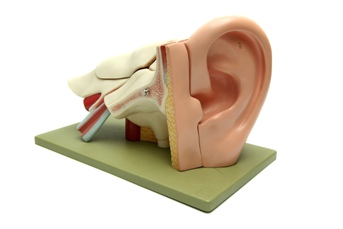| | 09 August, 2009
| | Hebrew U. researchers shed light on the brain mechanism responsible for processing of speech | | Research findings may contribute to improvement of voice recognition technologies |
 | | (Photo: stock.xchng) |
|
Researchers from the Hebrew University of Jerusalem have succeeded for the first time in devising a model that describes and identifies a basic cellular mechanism that enables networks of neurons to efficiently decode speech in changing conditions.
The research may lead to the upgrading of computer algorithms for faster and more precise speech recognition as well as to the development of innovative treatments for auditory problems among adults and young people.
Our brain has the capability to process speech and other complex auditory stimuli and to make sense of them, even when the sound signals reach our ears in a slowed, accelerated or distorted manner.
However, the neuronal mechanisms that enable our brain to perceive a word correctly, for example, that is pronounced in different ways by different speakers or to understand a heavy accent, was a mystery to scientists until now.
Research associate Dr. Robert Gütig and Prof. Haim Sompolinsky of the Edmond and Lily Safra Center for Brain Sciences at the Hebrew University have succeeded in describing a cellular process by which sensory neurons in the brain can automatically adjust their perceptual clocks and thus correct large temporal variations in the rate of sounds and speech that arrive from the environment.
According to their findings, which were recently published in the PLoS Biology journal, the bio-physical mechanism that exists in our brain enables single nerve cells in the cerebral cortex to perform word identification tasks almost perfectly.
The understanding of the process of speech decoding and the possibilities of its implementation in technology – by the development of neural network algorithms for the identification and processing of various patterns of sound signals – could lead to the significant upgrading of speech recognition technology in communications and computing, for instance in telephone voice dialing or in voice and sound monitoring devices.
The technology has been patented by Yissum, the Hebrew University's technology transfer company.
|
Downloadable File: SompolinskyAug09.doc |
|


